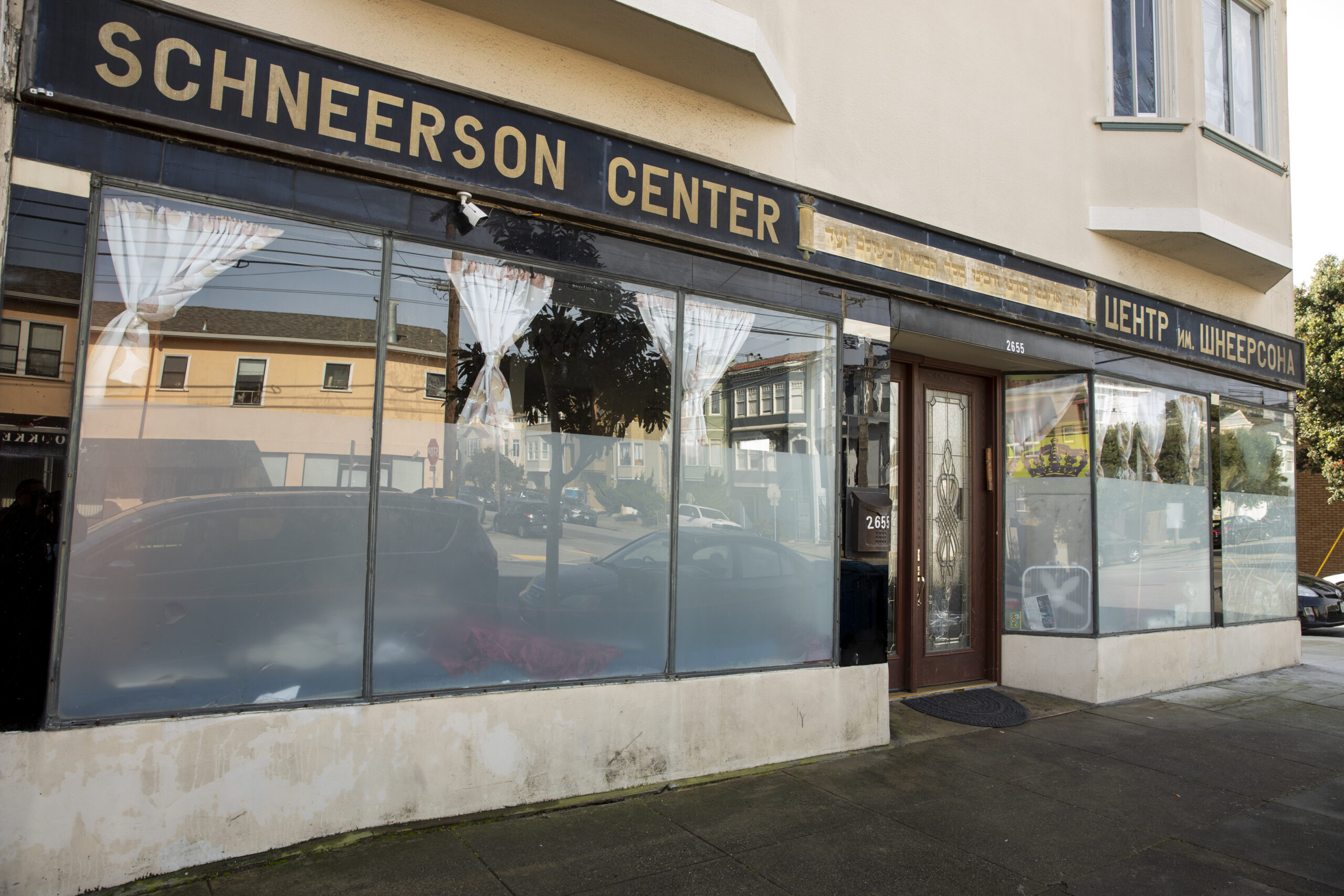A judge dropped hate crime enhancements against a man accused of firing blanks inside a San Francisco synagogue, saying it was unclear whether he targeted worshippers because they were Jewish.
Dmitri Mishin, 51, still faces two felony charges of religious terrorism and a handful of misdemeanors in the bizarre Feb. 1 incident that frightened congregants at the Schneerson Center. No one was injured in the shooting.
In dismissing the enhanced charges Tuesday, Judge Loretta M. Giorgi said the evidence didn’t convince her that antisemitism led Mishin to allegedly target the synagogue in San Francisco’s Richmond District.
She also discharged three misdemeanor counts of drawing or exhibiting an imitation firearm—each representing a separate victim—but added four more on the same count linked to additional victims.
Mishin pleaded not guilty to all charges last month.
The decision brought an unexpected end to a hearing where the prosecution argued that Mishin’s social media posts of antisemitic propaganda and photos of himself dressed as a Nazi soldier constituted a motive and the defense countered that he was himself Jewish and a history buff interested in military uniforms.
The decision will also disappoint the largely Russian-speaking immigrant community of the Schneerson Center, according to Alon Chanukov, the synagogue’s junior rabbi.
Worshippers present in the Schneerson Center during the shooting initially declined to tell police about it, fearing retribution from the shooter.
“My whole thing has been telling the Russian community that they were wrong to not report this immediately, that they were wrong not to trust the system,” he said. “It’s frustrating.”
Second Day, More Evidence
Monday, the first day of the preliminary hearing, saw police officers, the Schneerson Center’s lead rabbi and Mishin’s mother take the witness stand.
A police sergeant who questioned Mishin after his Feb. 3 arrest testified that the defendant admitted to firing the gun in the synagogue and called it a “form of prayer” for his friend’s bird.
Before the hearing wrapped up for the day, Mishin’s mother testified that she is Jewish and so is her son. She said Mishin has mental health issues and has been a patient at a Richmond District clinic for decades.
On the second day, the mother, Ludmila Mishina, returned to the stand to tell the court that her grandfather was killed by Nazi Germany and her father served in the Soviet Army and was wounded fighting the Nazis in World War II.
By sharing that experience, the grandfather instilled in Mishin a lifelong interest in military history, Mishina told the court.
“It’s our pride,” she said. “There’s no way we, fighting the Nazis in World War II, would come to America and become Nazis. It’s just an unbelievable accusation.”
Mishina said her son is “no angel” and has problems, but holds no prejudice against Jews.
The judge’s decision appeared to hinge on whether Mishin’s social media posts signaled antisemitic bias. Posts shared to his accounts immediately before and after the shooting included a video of something burning outside the synagogue, an antisemitic poster, and an image of him in a German uniform.
Deputy Public Defender Olivia Taylor cast Mishin’s Jewish ancestry and interest in history as context suggesting the social media posts weren’t meant to be antisemitic.
The photo of Mishin in a Nazi uniform? Taylor said that came from his acting role in a 2010 short film about World War II.
If wearing the uniform indicated bias, “then every actor who has ever played a Nazi in a movie, including Tom Cruise, would be considered a Nazi,” she argued.
Deputy District Attorney Jamal Anderson countered that the social media images and their timing spoke for themselves.
“The post in and of itself is the commentary,” he said, referring to a Nazi propaganda poster Mishin shared on Twitter.
However, several seemingly relevant social media posts, in which Mishin responds to others on Twitter using antisemitic slurs, did not come up in the hearing.
In one such tweet, Mishin’s account responds to U.S. Senator Lindsay Graham in grammatically incorrect Ukrainian: “We will drown k***s in k*** blood.”
Ultimately, Taylor’s argument prevailed. Giorgi said she saw “no substantial evidence of bias.”
In particular, she said if Mishin spoke with worshippers before shooting and waved goodbye before leaving, as surveillance footage and witness statements suggest, that indicates he was “affable towards the group,” but a “nutty person.”
Giorgi ruled that Mishin will face felony charges, but not as hate crimes. He will be arraigned on the revised charges on March 21.
Taylor told The Standard she now hopes to find a way for the court to release Mishin from jail before his trial without creating risks to public safety. Mental health treatment would be a key part of that.
“My hope is that Mr. Mishin can participate in programming that really helps address some of the underlying causes of what happened,” she said.
The District Attorney’s office did not respond to a request for comment by publication time.
Worried Congregation
The Schneerson Center’s Chanukov is disappointed by the judge’s decision.
He told The Standard that the synagogue has never paid for security in years past. But, yesterday, as the Jewish community marked the holiday of Purim, they had an armed security guard outside for the first time ever.
Before his arrest, Mishin reportedly lived just blocks away from the Schneerson Center. The community fears he will only get a slap on the wrist and be out of custody soon, Chanukov said.
That will raise safety concerns for the community—and the synagogue cannot afford armed security for every service. The Schneerson Center is already contemplating moving to a more secure building.
“If he doesn’t get a serious sentence,” Chanukov said, “we’re just going to be praying we can raise the money to move out of our place fast enough.”
